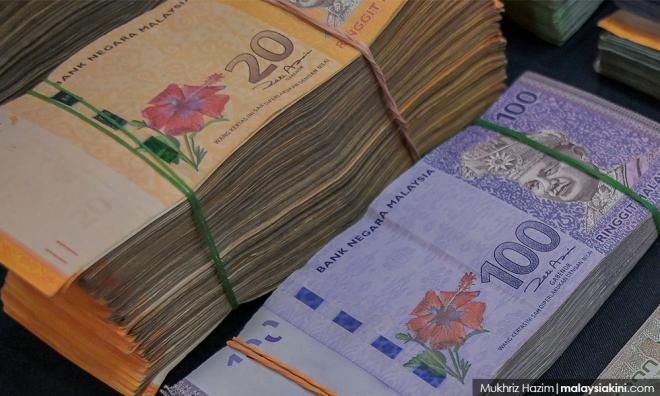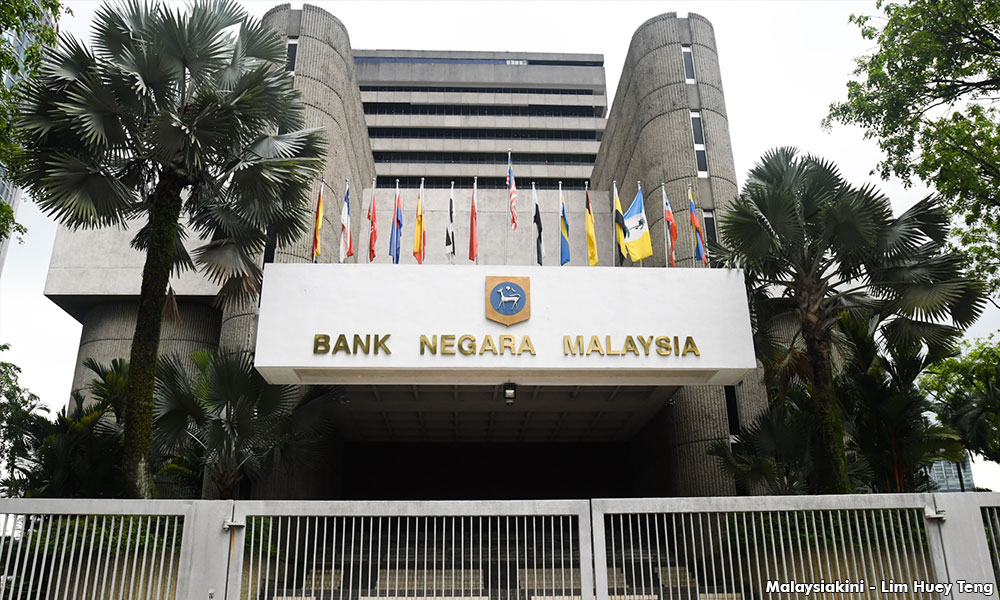
Newly-minted Prime Minister Muhyiddin Yassin announced on Friday night a new RM250 billion stimulus package for the Malaysian economy, with the focus on stabilising small and medium enterprises (SMEs) and having a fresh injection of funds to our healthcare system to combat the Covid-19 outbreak.
As the global economy grinds to a halt, staring down the throat of a global recession, the Malaysian cabinet introduced the financial stimulus to curb the impending economic fallout. Handouts by the government for the people have been applauded by many, but it is to my belief that all Malaysians should be increasingly aware of its consequence on our currency and our economy.
Even after the movement control order is lifted and we have steered clear of the Coronavirus pandemic, the Malaysian economy would still be on course for an economic disaster. A RM250 billion injection breathes a sigh of relief for the short term, but we really have to ask questions about where the money is coming from, and how will it assist us in the long run. No specifications have been revealed about how the government intends to garner sufficient funds to carry out the financial assistance as promised.
Speaking specifically on the amount of the stimulus package, there are a few ways in which this could be achieved. Unconventional monetary policy such as quantitative easing through the purchase of government bonds has been proven effective in times of crisis. As these securities are sold, this will lead to an increase in money supply and banks possessing more liquidity. This results in banks being able to offer loans with lower interest rates to businesses, allowing greater ease in borrowing and thus injecting cash into our economy, stimulating growth.

However, Bank Negara reserves are valued at a little over US$103 billion. As our nation’s fiscal policies are dictated by Bank Negara, they’re committing more than half of their reserves, which is extremely risky. It may be sufficient for a short-term injection by the stimulus package, but as downturn from the recession is expected to be greater than that of the Great Depression according to experts, our reserves would be dangerously ill-equipped.
The government could also short its position through the use of bonds by penetrating into foreign capital markets. An example of this method being used was just last year when former prime minister Dr Mahathir Mohamad alongside Japanese Prime Minister Abe upon the issuing of 200 billion yen worth of Samurai bonds to boost foreign direct investment.
By issuing the Samurai Bonds, we allowed investors easier access into the Malaysian economy as a) reducing the risk of exchange rate volatility for investors, and b) they will be abiding by their national financial regulations, with their government acting as the “legal regulator” for their investment in our nation.
As a proven method during times of economic stability for the issuer, a similar attempt of sorts currently would certainly be laughed at, with countries more focused on pulling themselves out of economic trouble than lending a hand. This method will work provided there is a lender-lendee scenario, one which I find almost impossible in the case of a global recession.
Another method would be the additional printing of money in an attempt to increase the circulation of money, one which I find most unlikely and frankly idiotic. This can result in too much money chasing too few goods. To excessively print money with little or no disregard to the current state of economic activity would be counter-intuitive and might lead to hyperinflation or worse stagflation similar to the plights of Weimar Germany. I need not emphasise on the gravity of this scenario any further.

Understandably, such a stimulus package is needed as people are left in dire circumstances. As Malaysians ponder on how and why nations such as the US and the UK announce outrageously huge lump sums of money to be injected into their economies, we need to be reminded that we are presented with a different set of circumstances.
It is futile to compare. The Malaysian economy does not invoke the same level of confidence in investors as the US and British economies, and our currency is only worth a fraction compared to theirs. Malaysia would be ill-equipped to face the global recession at this rate, and our climb back up to economic stability would be a daunting task.
It is no secret that our nation is mountain high in debt, as it was constantly paraded in the media by the previous administration for the past 20-odd months. But even more so, our economy before this pandemic was in the gutter. Plagued by a political crisis that destabilised our economy for the most of February, coupled with a looming global recession, the additional injection is merely the calm before the storm. Taxes will soon rise after this crisis is averted in an attempt to curb the incurred debt, and the taxpayers will bear the brunt of it for the years to come.
The government has to think long and hard about such an allocation. The PM tugged some heartstrings during his speech on Friday night, calling for all Malaysians to be united as one during these trying times. We do not know if this is a conscientious effort to win over the hearts and minds of the populace for their "illegitimate" government or the economic interest of Malaysia. That interpretation will be up to your imagination.
Whether we steer clear of this pandemic and the subsequent global recession is up to the policies and leadership of this new administration. This is Muhyiddin’s biggest test, and the fate of our nation’s economy rests in his hands. - Mkini


No comments:
Post a Comment
Note: Only a member of this blog may post a comment.